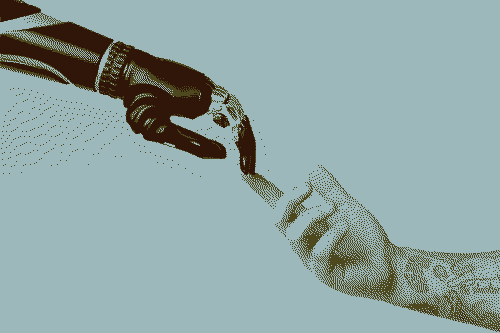Why Should We Care About Aligning AI?

What does AI alignment mean?
AI alignment is the aim of steering AI systems towards society's goals, preferences, ethical principles and values (1). Having the aim of aligning systems with our values ensures that AI systems do not pursue goals we did not intend for them to that may be harmful to humanity. It is important that we keep this in mind at all stages of development to ensure safe AI production. Sometimes we do not realise the AI agents can pose until they are deployed, so even when we have ensured safety through production, there might be issues we did not account for that arise as emergent behaviour.
Another component of alignment is the choice of what values to align AI systems with (2), since as a humanity, we barely agree on values amongst ourselves. A consensus is that we do not want AI to harm humanity, but this is hard to quantify since many different definitions of "harm" exist. For example, some could argue that the release of large language models (LLMs) has made us very efficient, made knowledge more accessible and brought an overall higher net positive impact than negative. However, some could argue that it is taking away many of our vital life skills, such as thinking, since we dedicate our thinking to it, or taking away people's jobs without any preparation to overcome the consequences of this. This is why it is also important to keep a discussion going of what people define as "well-being" and "good", so that anything we develop and create fosters betterment for humanity. A solution to this variety is "multi-value alignment"
Right now, researchers use RICE, the 4 key principles of AI alignment:
- Robustness: systems that can operate without issues under many different conditions and different environments.
- Interpretability: understanding the AI processes, which can help us better shape AI because we know what results are coming from which parts.
- Controllability: systems that can respond to human intervention. This is important as it ensures that AI models are not resistant to human control.
- Ethicality: systems that are aligned with societal values and moral standards. (3)
Why should we care about aligning AI?
Now that we have explored what alignment is, we can dive into why we should even care about aligning AI, especially if we are not researchers or developers involved with this.
- It will affect us whether we like it or not
- To begin with, developments in AI will have significant effects on our lives, whether we like it or not. Whether you choose to use or not use AI, schools, universities, companies, and software you use daily are adopting it. We need to ensure this adoption is beneficial every step of the way. Many systems in your daily life are based on AI. What music gets suggested, NPCs in video games, and personal sales on your grocery store app. Jobs across the world are adopting AI surveillance systems to ensure productive employees. Governments across the world are adopting it for facial recognition, creating surveillance states. Weapons used to take human lives in armies are adopting AI technologies. Everything around us is likely going to be streamlined with the ease of artificial intelligence, and we have to ensure this transition is done ethically and for the benefit of humankind.
- It is trained on data we as humans produce
- To be able to train these systems, data produced by humans is being used. We need to ensure this data is taken ethically from us. Multiple scandals emerged where AI companies unethically took a lot of data with no permission, such as Meta training AI on pirated books (4). A lot of datasets also escape the internet, so whatever online presence you have may have been used to train AI. Your social media posts are likely to also be used to train AI, such as Meta's new warning for Instagram and Facebook (5). Right now, only European users can opt out of this feature.
- So as you can see, it is important to keep up and care about the alignment of AI so that our data is not taken without our permission, unethically, to train AI. It's not just AI's behaviour that needs to be aligned, but also that of the developers.
- Malicious Agents
- Other than the points above, AI can exacerbate already existing dangers in the world. Any invention of humankind that makes it easier to do tasks also paves a new way to ease malicious actors into using these tools to do unbeneficial acts much more easily. These malicious actors can even be corporations, when they want to enact surveillance in offices to violate the rights of privacy of individuals. This should not stop us from innovating new tools that will help humanity, but it reminds us to implement guardrails and align AI in ways to ensure that it is used safely.
What can we do to align? How can we ensure safety?
So, after all this negativity, what can we even do to ensure safe and ethical production and use of AI??
- Regulations!
- Even caring and being informed about it is a great start. This encourages you and your government to push for better regulations. It delegates the job of keeping up with rights that are taken away from you to those who understand how AI works and those who understand what your rights are and how to protect them. Regulations ensure that corporations with intentions of making money without taking ethical values into consideration are drawn lines that ensure they do not overstep anyone's rights or well-being.
- Opt out of AI training by corporations so they know the internet is not their playground
- A good example of regulation is the GDPR. European governments are good at ensuring safety for those living within their borders by putting restrictions on companies from invading people's privacy. This is the reason that the choice to opt out of Meta using your social media posts for training AIs is even possible.
- By opting out of your data being used for training (whenever given the option), do it. This lets developers and companies know that the internet is not their playground, and taking small actions like this is like voicing your beliefs to corporations. Who knows... maybe at some point they will take the message.
- Voting with our choices (what we use/don't use/pay for) can help make change
- We can vote with our choices, we can vote with our money, and this can drive real change! What you choose to use and what we choose to pay for means consent and encouragement for developers to keep doing what they do. There is power in numbers; the more people use and buy stuff they don't agree with, the more power we give to these malicious actors. A good way to show your beliefs is to stop funding these agents. Opt for open-source options, ones that care about your privacy, and better values can flourish.
- Remember that your voice matters, but at the same time, it's not the individual's fault
- But remember that while it is important to be aware that your voice matters, it's also important to remember that it is not your fault as an individual. You should not hold the burden of malicious actors on your back. Watch out for your use, but remember that it is still okay to use LLMs, for example, when no alternatives exist.
What happens if we get to align AI?
Well, if we play our cards correctly, and AI serves humanity instead, we can achieve a utopia where our rights to privacy are protected, nature flourishes instead of being abused for data centres. Education is streamlined and more beneficial, the internet connects everyone, we do not have to work many hours anymore, and we can have a better work-life balance. Everyone's dream world looks different, but I think with the beneficial and aligned implementation of AI, humanity as a whole can flourish.
Sources!
- Wikipedia, AI Aligment
- Hendrycks, D. (2025). _Introduction to AI safety, ethics, and society_ (p. 562). Taylor & Francis.
- IBM; AI Alignment
- Meta AI trained on pirated books
- Meta using your posts for AI

